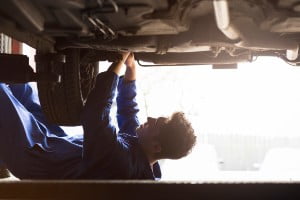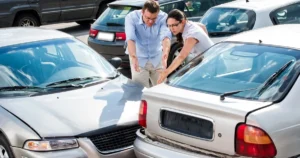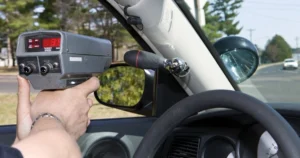 Could a mechanical failure be a contributing factor in your car accident?
Could a mechanical failure be a contributing factor in your car accident?
In short, yes. According to a National Highway Traffic Safety Administration (NHTSA) report, thousands of accidents caused by tire blowouts and other vehicle-related issues still happen across the country.
Pfeifer Morgan & Stesiak discuss car crash claims involving vehicle-related issues, including who may be liable.
If you think a mechanical failure may have played a role in your accident, it can be confusing trying to figure out how to pursue compensation for related injuries and damages on your own. This is why we recommend that you first contact one of our experienced lawyers in Indiana to set up your free initial consultation.
There is no obligation to hire our services after meeting with us, and we can provide answers to your legal questions. Additionally, if we take your case, you pay us only if we obtain a settlement or jury verdict on your behalf.
Top Causes of Accidents Due to Mechanical Failures
We invite you discuss specific details about the causes and contributing factors that may have led to your accident with one of our South Bend car accident attorneys.
In general, however, these are some of the most common types of mechanical failures that may contribute to a car crash:
Defective/Worn Tires
Tires are, without a doubt, the most common cause for accidents due to a vehicle-related issue. If a truck or car has a faulty or defective tire, it can blow out unexpectedly and may cause the driver to lose control of his or her vehicle.
In other instances of car crashes caused by a tire blowout, it may be down to a lack of maintenance on the part of the driver for failure to properly maintain his or her vehicle. A worn tire can cause the driver to lose control of his or her vehicle on a click surface, such as sandy, wet or icy roads.
Brakes
The second most common vehicle-related issue that can be a contributing factor in a car crash is worn or defective brakes. Brake failures may be due to:
- Worn brake pads or discs
- Faulty, worn or defective brake lines
- Malfunction in the ABS system
Steering and Suspension Issues
Although less common, your car’s steering and suspension system has multiple interconnected parts, some of which may be more susceptible to breakage. Common steering and suspension issues that may lead to a vehicle-related car crash include:
- Ball and joint defect or snapped steering relay – affects your car and tires ability to turn
- Faulty steering wheel assembly – such as if the steering wheel detaches from the column
Failed Windshield Wipers
Many people may put off replacing their windshield wipers even though it is a low-cost, easy repair. Some may forget or procrastinate, but whatever the reason, properly working wipers can be the difference between seeing a potential hazard in time to respond – or not.
Who May Be Liable For a Vehicle-Related Car Crash?
Multiple parties may share liability in an accident where a vehicle-related issue may have contributed to the crash, including:
Driver/Car Owner
Often in car crashes caused by some type of mechanical or vehicle-related issue, the driver or car owner may still be at-fault. This is especially true if the driver knew, or should have known that there was a potential hazard, such as:
- Grinding noises indicating that brake pads were worn
- Bald or worn tire treads
- Low tire pressure
- A known product recall – as with the Takata air bags – that was ignored
Maintenance/Mechanic/Car Repair Shop
A mechanic or service repair station may liable if a faulty or negligent repair may have been a contributing cause of your accident.
Manufacturer Defect
Sometimes a defective part can play a role in causing a car crash. In these cases, the manufacturer may share liability.
Can You File a Claim For a Car Crash Involving a Mechanical Failure?
Injured victims may be eligible to pursue damages following a car crash, even if a mechanical failure may have contributed in some way. However, as per Indiana’s modified comparative fault system, you must not be more than 51 percent at-fault for the crash.
Any percentage of liability you are assigned, even if it is less than 51 percent, will be deducted from any final settlement you may receive.
Contact One of Our Attorneys To Discuss Your Vehicle-Related Crash
If you are injured in an accident where a vehicle-related issue may have been a contributing factor, we are prepared to help. In some cases, the at-fault driver may still be liable. However, a third-party may also share liability. We encourage you to contact us before you speak with your insurance company. We have the resources to investigate all potential liable parties, including if a mechanical failure may have contributed to your crash.
Contact a representative at Pfeifer, Morgan & Stesiak anytime, night or day, to set-up a time for your free initial consultation. We take car accident cases on contingency. This means no upfront costs for you, and no pay for our fees unless you get paid first.
Legal help when you need it. Call: (574) 444-0741













